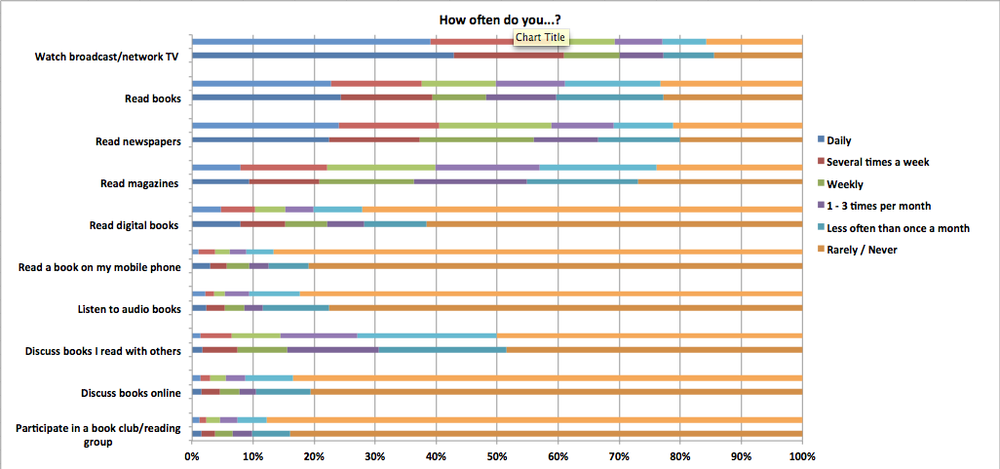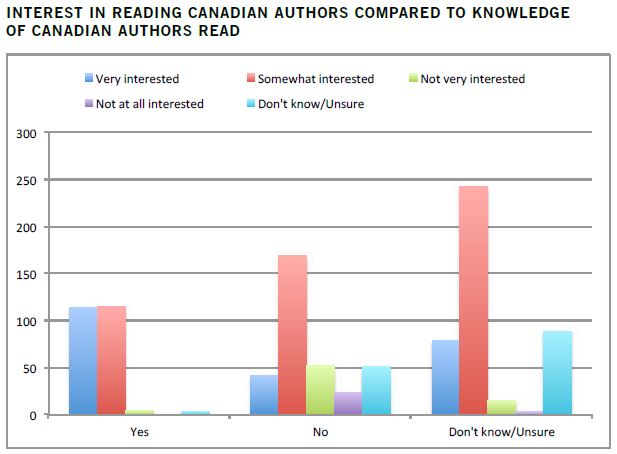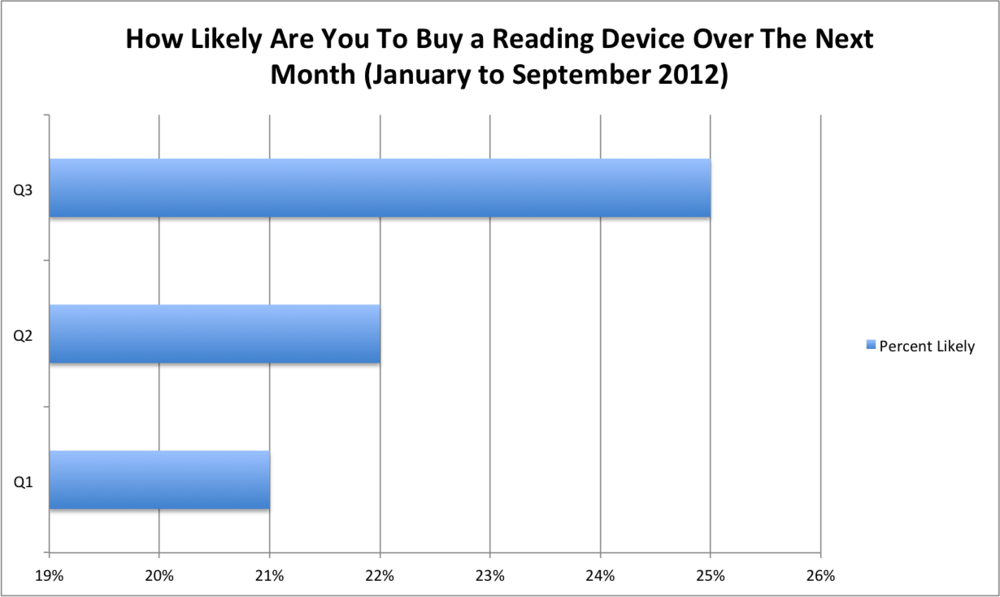Google Trends today launched Top Charts, a monthly view (US-only for the time being) of the top searches on Google, broken down by some broad categories—like books, cars, athletes, and many more. Here’s what might be of interest to bookish folk.
Canadian Book Consumer 2012
Canadian Book Consumer 2012 - An infographic by the team at BookNet Canada
Embed this infographic using the code below:
<img src="/storage/research-education/BookNet%20CBC%202012%20Infographic.jpeg?__SQUARESPACE_CACHEVERSION=1384784845674" width="540"> <p>Canadian Book Consumer 2012 - An infographic by the team at <a href="/consumer-studies/">BookNet Canada</a></p>
What Canadians Think About Canadian Books
How Do Canadians Spend Their Free Time?
 BookNet Canada has fielded a consumer panel in February for the last two years. The results from the panel are used to help inform the data we collect for our study, The Canadian Book Consumer. In the general consumer questionnaire, we ask approximately 750 English-speaking Canadians from across the country how they spend their leisure time, how much time they spend per day on those leisure activities, and, this year, what mobile devices they own (at least the ones that could potentially be used for e-reading).
BookNet Canada has fielded a consumer panel in February for the last two years. The results from the panel are used to help inform the data we collect for our study, The Canadian Book Consumer. In the general consumer questionnaire, we ask approximately 750 English-speaking Canadians from across the country how they spend their leisure time, how much time they spend per day on those leisure activities, and, this year, what mobile devices they own (at least the ones that could potentially be used for e-reading).
E-Reading Search Trends in Canada

Learning to Be Truly B2C
 We all know that publishing must become increasingly consumer-centric, but few of us really know how to make that happen. B2C marketing has become a priority for publishers but there is a lot more to becoming a consumer-centric business. While publishers have traditionally considered themselves taste-makers, if not gate-keepers, that dynamic needs to change as consumers are becoming an increasingly active participant in the retail environment. Consumers have a more powerful voice and the expectation to be heard. This is influencing many industries, and a market-driven approach is proving to be critical to the success of companies across industries. This is why, this year, I’ve focused the Technology Forum programming on B2C thinking. This is a vague term that covers a lot of ground as you can see from the programming confirmed so far.
We all know that publishing must become increasingly consumer-centric, but few of us really know how to make that happen. B2C marketing has become a priority for publishers but there is a lot more to becoming a consumer-centric business. While publishers have traditionally considered themselves taste-makers, if not gate-keepers, that dynamic needs to change as consumers are becoming an increasingly active participant in the retail environment. Consumers have a more powerful voice and the expectation to be heard. This is influencing many industries, and a market-driven approach is proving to be critical to the success of companies across industries. This is why, this year, I’ve focused the Technology Forum programming on B2C thinking. This is a vague term that covers a lot of ground as you can see from the programming confirmed so far.





